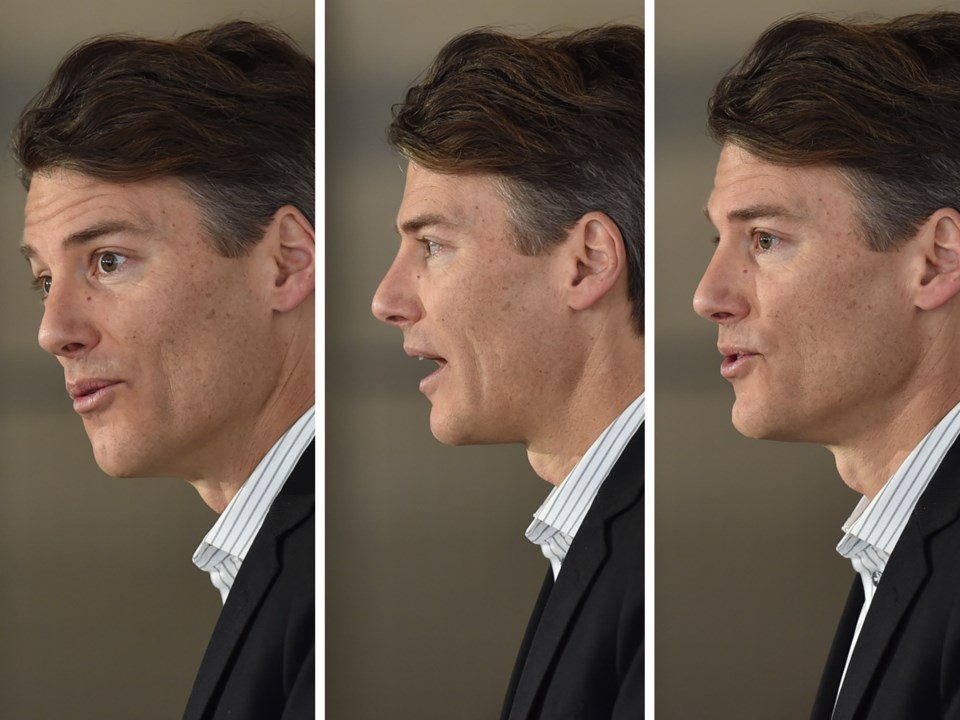In this line of work, it’s always helpful when you ask a question that you receive an answer — even if it takes a couple of days, a week or however long ago it was when I asked in: “Should Â鶹´«Ă˝Ół»city council push to decriminalize illicit drugs?”
I asked the question because the city issued a news release March 9 about the opioid overdose crisis and buried the fact that a Canadian municipal government was calling on senior governments to “convene a multi-sectoral task force to implement immediate decriminalization of personal possession of illicit drugs.”
There was no news conference, no bold headline calling for decriminalization, no written support from the mayor or councillors — just a one-liner near the bottom of the release, which was an odd placement in the text for such a public call for a radical change to drug laws.
Anyway, 19 days later via another news release, we now know Mayor Gregor Robertson is officially on board with the city’s call for decriminalization, albeit near the end of his third and final term as mayor.
Still, his support is kind of a big deal since Robertson is still in charge at city hall and doubles as chairperson of the Â鶹´«Ă˝Ół»Police Board, which sets policy for the police department.
The feds, however, have the ultimate power to change drug laws.
Such a move is not exactly a non-starter, since some federal Liberal MPs and national NDP leader Jagmeet Singh have called for removing criminal penalties for personal possession of illicit drugs.
I’m not sure how the rest of council feels about a call for decriminalization, although I did speak to Vision Coun. Kerry Jang, Green Party Coun. Adriane Carr and NPA Coun. George Affleck, who appear to be on board.
Expect council to further discuss the issue later this month at city hall.
The mayor’s public support for decriminalization came the day after the Public Health Agency of Canada released a depressing report showing 5,869 people died of a drug overdose in this country between Jan. 1, 2016 and September 2017.
The majority died in B.C., followed by Ontario, Alberta and Quebec. Â鶹´«Ă˝Ół»alone lost 365 people last year to overdose, with coroners’ investigations continuing and the death toll expected to rise.
Robertson said the current legal framework for drugs in Canada is failing and resulting in thousands of people dying. He said the country needs a new regulatory approach for drugs that ensures addiction is treated as a health issue, not a criminal one.
“Decriminalizing possession alone won’t solve the problem, but — combined with enhanced prevention and treatment options — would be a lifesaving shift at a time when the current approach is a humanitarian disaster,” he said.
His line about “decriminalizing possession alone won’t solve the problem” sounded familiar. So I went back and checked an email VPD Sgt. Jason Robillard sent me March 16, which read, in part: “We are of the view that decriminalization of personal possession of illicit drugs alone would not address the issue of opioid deaths since the supply would still be controlled by the illicit market.”
That said, Robillard told me the VPD--which could be argued already subscribes to a form of decrminalization by not making many arrests for personal possession--would welcome an invitation to be part of that multi-sectoral task force city staff recommended in the March 9 release to discuss decriminalization.
Whether that task force is ever implemented is unknown at this point.
So is guessing who will be the next mayor of Â鶹´«Ă˝Ół»and whether that person pushes for decriminalization or some other “lifesaving shift.” Some might say making such noise is futile because the city has no power to make changes to drug laws, anyway.
It’s a valid point.
But action has to be taken, as Robertson, Premier John Horgan and Prime Minister Justin Trudeau have all said since they were elected.
Without question, all levels of government have spent millions of dollars on fighting the crisis. That’s included the widespread circulation of the overdose-reversing drug naloxone, developing education campaigns, opening more injection sites and funding studies that show prescription heroin and hydromorphone are keeping drug users alive.
What’s clear, though, is no amount of politics, press releases and press conferences benefited the people who died last year, this year and the others who will be dead by municipal election day in October.
@Howellings



